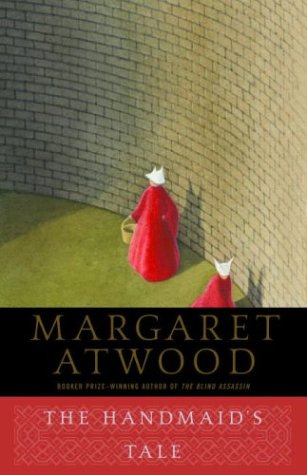The Handmaid's Tale
Author: Margaret Atwood
Average Rating: 3.98/5.0
Personal Rating: 4.0/5.0
Page Count: 311
Finished Reading: October
Published: 16 March 1998
According to Goodreads:
Offred is a Handmaid in the Republic of Gilead. She may leave the home of the Commander and his wife once a day to walk to food markets whose signs are now pictures instead of words because women are no longer allowed to read. She must lie on her back once a month and pray that the Commander makes her pregnant, because in an age of declining births, Offred and the other Handmaids are valued only if their ovaries are viable. Offred can remember the years before, when she lived and made love with her husband, Luke; when she played with and protected her daughter; when she had a job, money of her own, and access to knowledge. But all of that is gone now.
My opinion:
My English teacher from sophomore year recommended that I read this novel, however I haven't had time to pick it up until this year. The only reason that I did pick it up was due to the fact it was a book I had to read for my English class this year. It's kind of intriguing how we have certain books that we do want to read, but push out of the way to make room for another book instead. BUT I digress.
Atwood creates a dystopian world that is freakishly realistic. The book shows how people can strip others of power when everything is electronically transferred. Everyone in the book's society use cards that are similar to our credit cards. Paper cash has no value anymore. Every single woman's bank account has been frozen, and many are labeled "unfit" to be a mother anymore. Families are ripped apart, and suddenly women aren't allowed to have a job, access to money, read, and write.
Throughout the novel, the reader is taken back through flashbacks of Offred. Through these flashbacks and the present accounts we are able to put two and two together about why and how the society has taken this turn. As we read, we watch as Offred becomes brainwashed and begins to accept her position in this new society of Gilead.
Atwood alludes to the Old Testament quite a lot for the names of stores, towns, and people. She communicates the message that this society and time period could repeat itself in the future. That future may also be closer than we think as we become more dependent on technology and electronic transactions. I would recommend this book to everyone, because it isn't the typical teen lover dystopian that we have grown used to lately. It's raw, classic.


No comments:
Post a Comment